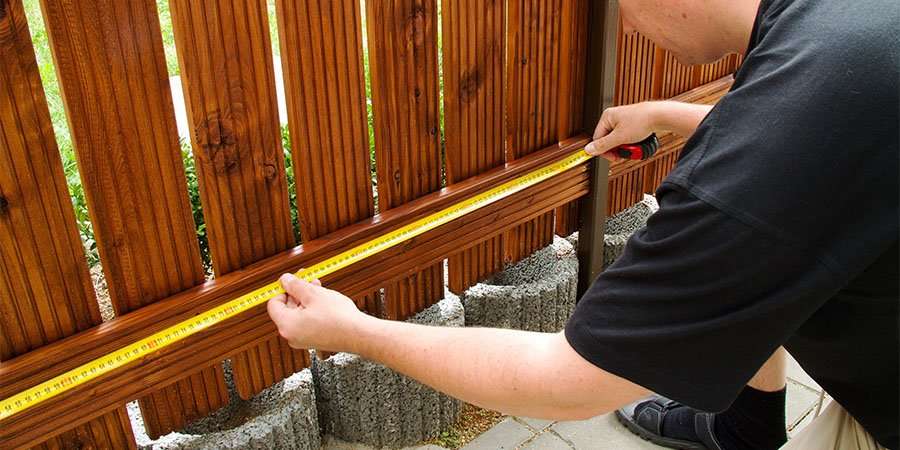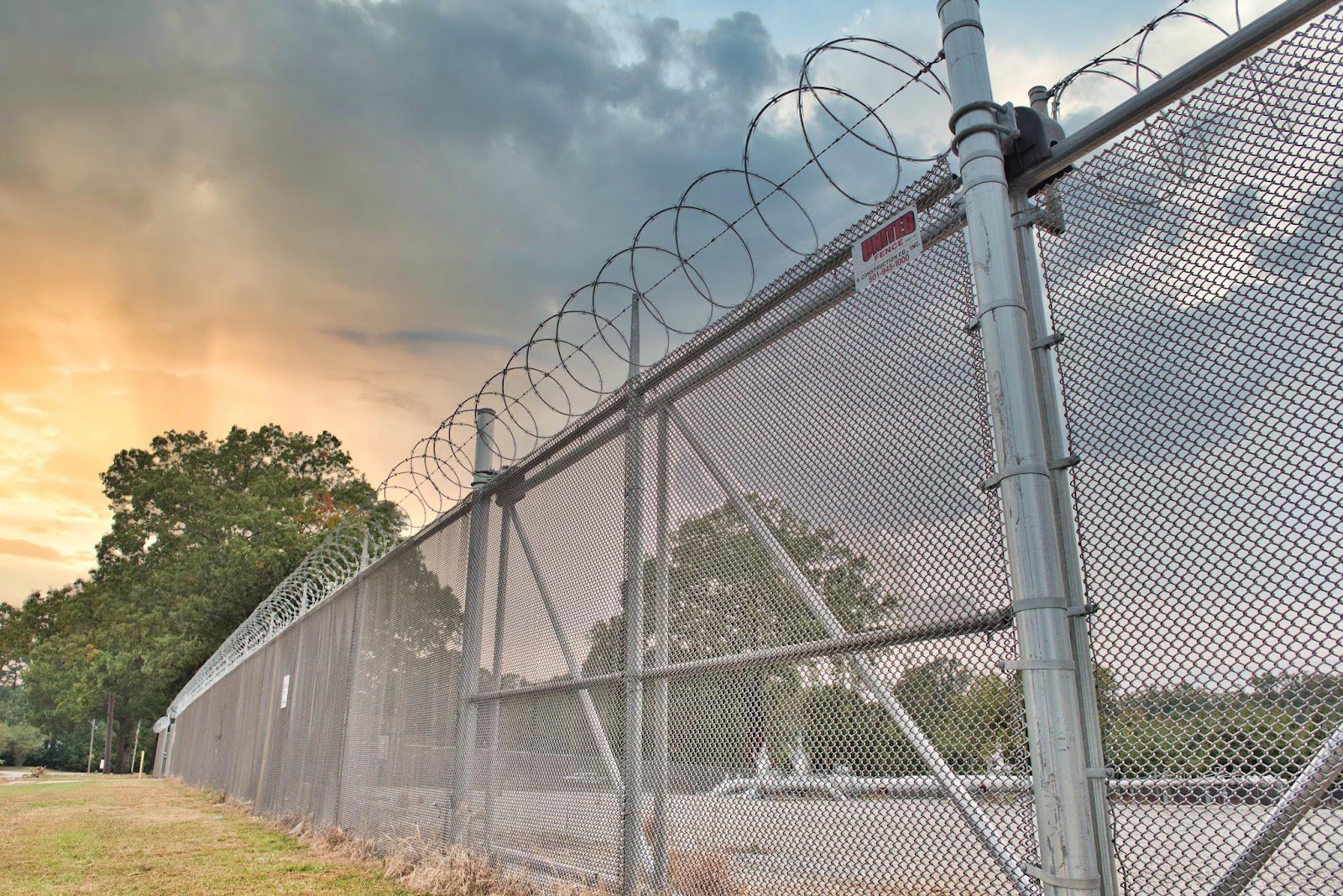All Categories
Featured
If you're taking into consideration setting up a fencing around your building, recognizing the permit demands in your location is important. While constructing a fencing could seem like a straightforward DIY task, a number of guidelines might control its building depending on where you live. Stopping working to acquire the correct licenses can result in fines, fines, or perhaps needing to eliminate the fencing altogether. In this overview, we'll break down the various licenses you may require to install a fencing and how to guarantee your project stays certified with neighborhood regulations.
Why Are Allows Needed for Fence Installment? Authorizations are called for to guarantee that the fence you construct stick to regional building codes, zoning laws, and safety and security standards. These authorizations are in location to secure your residential or commercial property, the residential or commercial properties around you, and the atmosphere. They make sure that the fencing won't block energies, web traffic circulation, or produce dangers for pedestrians. In addition, they aid preserve the visual and architectural stability of your community.
![]()
Sorts Of Permits You Might Demand. Structure License. A building license is the most usual need for installing a fencing. If your fencing goes beyond a particular elevation (normally around 6 feet), you might need to get a building license.
Zoning Permit. A zoning authorization makes sure that your fence complies with these regulations. Your fencing might need to be established back a certain distance from sidewalks or property lines.
Homeowners Organization (HOA) Approval. If your home becomes part of a home owners association, you may need approval before setting up a fencing. HOAs frequently have rigorous rules relating to the type, design, and products utilized for fences to maintain an uniform look throughout the community. The HOA may need you to submit thorough plans or request authorization prior to setup. Make certain you adhere to these guidelines to prevent potential penalties or penalties.
Specialty Permits. In some situations, you might require specialized permits based on the location of your home or the nature of your fence. As an example, if your building is in a flood zone, you might need added licenses to make sure that your fencing does not obstruct water drainage or water flow. Similarly, if you plan to build a fencing near an eco secured location, you might require a special permit to follow environmental laws.
![]()
Energy Easements and Utility Company Approvals. Prior to mounting a fence, you need to examine if your residential property has an easement. Building a fencing within an easement can conflict with energy upkeep or damage underground lines.
How to Establish Which Permits You Required. Consult Local Authorities. The initial step in establishing the permits called for is to contact your regional building department or zoning office. They can offer specific information about what licenses are essential for your area. Several cities have online sources or websites where you can check the needs and even get a permit online.
Consult an Expert Fencing Service Provider. A regional fence professional is typically acquainted with the license process and regional guidelines. They can help you navigate the requirements and ensure that your job is certified. Lots of service providers also handle the authorization application process on your behalf, conserving you time and effort.
Evaluation Your Neighborhood's HOA Guidelines. If you reside in a neighborhood controlled by an HOA, ensure to assess their standards before making an application for any permits. The HOA may call for particular designs, materials, or elevation restrictions for fencings within the area. Submit your strategies to them for authorization prior to continuing.
![]()
Consequences of Not Getting a License. Mounting a fencing without the required licenses can lead to serious repercussions. You might face fines, be ordered to remove the fence, or be needed to renovate the setup to meet code requirements. In addition, marketing your home can be made complex if the fencing doesn't fulfill neighborhood laws. Prospective purchasers may wait to buy a home with an unpermitted fence, especially if it's in offense of zoning laws.
Verdict. Before mounting a fence on your building, ensure you understand the neighborhood guidelines and acquire any necessary licenses. Structure authorizations, zoning permits, HOA approvals, and specialty allows all play a crucial role in making certain that your fence is safe, lawful, and certified. Making the effort to study and secure the suitable authorizations will conserve you from costly mistakes and potential lawful concerns in the future. Whether you're preparing a privacy fence or a decorative limit, complying with these actions will aid make the installment process smooth and convenient.
Why Are Allows Needed for Fence Installment? Authorizations are called for to guarantee that the fence you construct stick to regional building codes, zoning laws, and safety and security standards. These authorizations are in location to secure your residential or commercial property, the residential or commercial properties around you, and the atmosphere. They make sure that the fencing won't block energies, web traffic circulation, or produce dangers for pedestrians. In addition, they aid preserve the visual and architectural stability of your community.

Sorts Of Permits You Might Demand. Structure License. A building license is the most usual need for installing a fencing. If your fencing goes beyond a particular elevation (normally around 6 feet), you might need to get a building license.
Zoning Permit. A zoning authorization makes sure that your fence complies with these regulations. Your fencing might need to be established back a certain distance from sidewalks or property lines.
Homeowners Organization (HOA) Approval. If your home becomes part of a home owners association, you may need approval before setting up a fencing. HOAs frequently have rigorous rules relating to the type, design, and products utilized for fences to maintain an uniform look throughout the community. The HOA may need you to submit thorough plans or request authorization prior to setup. Make certain you adhere to these guidelines to prevent potential penalties or penalties.
Specialty Permits. In some situations, you might require specialized permits based on the location of your home or the nature of your fence. As an example, if your building is in a flood zone, you might need added licenses to make sure that your fencing does not obstruct water drainage or water flow. Similarly, if you plan to build a fencing near an eco secured location, you might require a special permit to follow environmental laws.

Energy Easements and Utility Company Approvals. Prior to mounting a fence, you need to examine if your residential property has an easement. Building a fencing within an easement can conflict with energy upkeep or damage underground lines.
How to Establish Which Permits You Required. Consult Local Authorities. The initial step in establishing the permits called for is to contact your regional building department or zoning office. They can offer specific information about what licenses are essential for your area. Several cities have online sources or websites where you can check the needs and even get a permit online.
Consult an Expert Fencing Service Provider. A regional fence professional is typically acquainted with the license process and regional guidelines. They can help you navigate the requirements and ensure that your job is certified. Lots of service providers also handle the authorization application process on your behalf, conserving you time and effort.
Evaluation Your Neighborhood's HOA Guidelines. If you reside in a neighborhood controlled by an HOA, ensure to assess their standards before making an application for any permits. The HOA may call for particular designs, materials, or elevation restrictions for fencings within the area. Submit your strategies to them for authorization prior to continuing.

Consequences of Not Getting a License. Mounting a fencing without the required licenses can lead to serious repercussions. You might face fines, be ordered to remove the fence, or be needed to renovate the setup to meet code requirements. In addition, marketing your home can be made complex if the fencing doesn't fulfill neighborhood laws. Prospective purchasers may wait to buy a home with an unpermitted fence, especially if it's in offense of zoning laws.
Verdict. Before mounting a fence on your building, ensure you understand the neighborhood guidelines and acquire any necessary licenses. Structure authorizations, zoning permits, HOA approvals, and specialty allows all play a crucial role in making certain that your fence is safe, lawful, and certified. Making the effort to study and secure the suitable authorizations will conserve you from costly mistakes and potential lawful concerns in the future. Whether you're preparing a privacy fence or a decorative limit, complying with these actions will aid make the installment process smooth and convenient.
Latest Posts
The Convenience and Effectiveness of Charging Your EV
Published Apr 20, 25
1 min read
Trendy Comfort Begins With the Ground Up
Published Apr 20, 25
1 min read
Contact Montclare Auto Repair Now - Trusted Service at Your Service
Published Apr 20, 25
2 min read